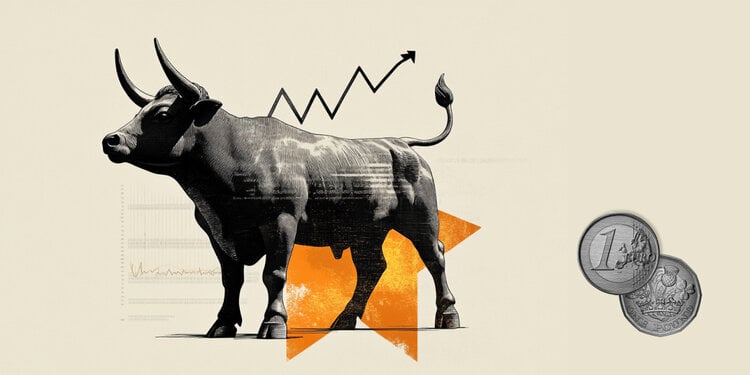Major Wall Street stocks are under pressure again on Thursday, with the S&P 500 now on the brink of bear market territory. Investors are abandoning equities fears that interest rate hikes by the Federal Reserve in the fight against inflation will eventually lead the US economy into recession.
On the dashboard, the industrial Dow Jones falls by 420.39 points or 1.33%, with the widest S&P 500 to “lose” 26.55 points or 0.68% and the technological Nasdaq to record losses of 13.17 points or 0.12%.
The S&P 500 closed yesterday 18.6% lower than its intraday high reached in January 2022, and about 18% below its closing high. If the losses reach and exceed 20% compared to the record high, the index will have moved to a bear market, its first since the sell-off period of the beginning of the pandemic, in March 2020.
“These are dark days for the stock market internationally, as stocks are falling almost everywhere on the planet. Walmart / Target data and fears about consumer spending have shattered any stability that had been achieved in the markets between last Thursday and Tuesday.” , writes Adam Crisafulli of Vital Knowledge.
On Wednesday, the Dow fell by 1,100 points, its worst sell-off in two years. The S&P 500 also suffered its worst daily losses since June 2020, at about 4%, while heavy losses were 4.7%. wrote “and the Nasdaq.
In their quarterly announcements on Wednesday, Target and Walmart announced higher fuel costs and limited consumer demand, amid the highest inflation in 40 years. After falling 24% for its share, Target continues to decline on Thursday.
“The sweeping sell-off at these companies (as well as at other related companies) shows that inflationary pressures are now having a clear imprint on corporate profits,” Barclays analyst Maneesh S. Deshpande said in a note. “Although rising inflation has a history of months, so far it has not been reflected in corporate results, which apparently no longer applies,” he added.
Cisco shares also suffered a strong blow on Thursday, after the announcement of results on Wednesday. Its revenues disappointed compared to analysts’ forecasts, while for the current quarter it predicted that they will be disappointing.
Kohl’s share also lost ground, which also disappointed in the quarter and cut its forecasts for sales and profits, mainly due to inflationary pressures on consumption.
It is now clear that the sell-off is now extending beyond the technology industry, as fears of an impending recession scare the investing public.
On Monday, Federal Reserve Chairman Jerome Powell reiterated that the US Federal Reserve “will not hesitate at all” to move aggressively on interest rates to control inflation, fueling investment concerns.
Recession can not be considered unlikely, as Goldman Sachs points out, with its customers constantly asking what to expect from shares in the event of such a scenario for the economy. Its economists estimate a 35% chance that the US economy will enter recession in the next two years and believe that the yield curve bodes well for a similar contraction.
Stock market indicators suggest that investors are worried about the risk of a recession. The rotation within the US stock market shows that investors are pricing higher chances of recession compared to the strength of recent financial data.
Among the 30 shares of Dow Jones, 2 are moving with a positive sign and 28 with a negative. Gains are those of Home Depot, Walt Disney, while losses are led by those of Cisco, Visa, IBM.
US: Initial unemployment benefit applications hit a four-month high
Initial US unemployment benefit applications climbed to a four-month high last week, with the number of continuing applications still at a multi-decade low.
In particular, new applications for benefits increased by 21,000 to 218,000 for the week ended May 14, according to the US Department of Labor. Analysts’ average estimates in a Bloomberg poll were for the applications to reach 200,000
By March, applications had fallen to a 54-year low of 166,000.
At the same time, continuing applications fell to 1.32 million for the week ended May 7, the lowest level since 1969.
Great deceleration manufacturing activity in its district recorded the latest survey of the Federal Reserve Bank of Philadelphia.
In particular, the Philadelphia Fed’s manufacturing index fell to 2.6 in May from 17.6 the previous month. This is the lowest level of manufacturing activity in the last two years.
Analysts’ average estimates in a Wall Street Journal poll put the index at 15. It is noted that measurements above zero show an expansion of activity in the manufacturing sector.
The Philadelphia Fed survey covers Pennsylvania, Delaware and New Jersey.
Source: Capital
I am Sophia william, author of World Stock Market. I have a degree in journalism from the University of Missouri and I have worked as a reporter for several news websites. I have a passion for writing and informing people about the latest news and events happening in the world. I strive to be accurate and unbiased in my reporting, and I hope to provide readers with valuable information that they can use to make informed decisions.







